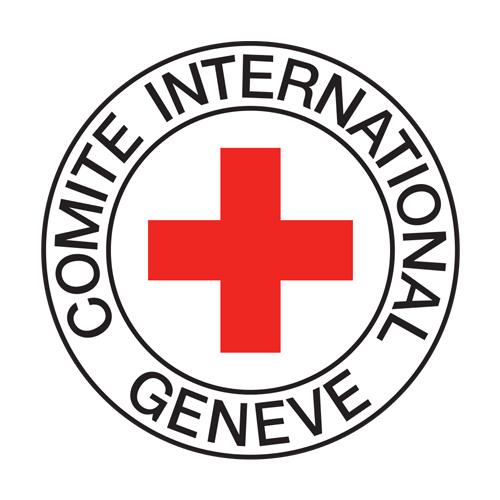International Committee of the Red Cross
International Awards
Hamdan Award for Volunteers in Humanitarian Medical Services
2017-2018
History & objectives:
The ICRC is an independent, neutral organization ensuring humanitarian protection and assistance for victims of armed conflict and other situations of violence. It takes action in response to emergencies, and at the same time promotes respect for international humanitarian law and its implementation in national law. The work of the ICRC is based on the Geneva Conventions of 1949, its Additional Protocols, its Statutes, and those of the International Red Cross and Red Crescent Movement, as well as the resolutions of the International Conferences of the Red Cross and Red Crescent.
The ICRC Code of Conduct reflects its commitment to meet fundamental principles and rules concerning ethical conduct in all organizational activities; it is about operational excellence
with integrity which is the core of the organization’s identity.
The ICRC has been helping people around the world affected by armed conflict and other situations of violence for over 150 years. Its actions aim at protecting the lives, health and dignity of people affected by aggression. The majority of the 14,500 staff members span 80 countries around the world; they may be working in the field, providing emergency assistance to those in need, or at centers that serve as regional hubs for the coordination and distributions of aid, or in major cities where they carry out humanitarian diplomatic work.
Activities & Achievements:
Humanity, Impartiality, Independence and Neutrality, Voluntary service, Unity and Universality are the fundamental principles that provide an ethical, operational and institutional framework that guides the organization in fulfilling its humanitarian mission. The ICRC relieves suffering purely based on need, regardless of race, gender, politics or religion. Moreover, because they are independent and neutral, they can save lives even in the most inaccessible and dangerous war zones.
Today, in an increasingly unstable and violent world resulting in an extremely challenging humanitarian environment, the ICRC has made a clear commitment to providing high quality health programs designed to meet professional standards. These programs continue to address the main Health Care needs in the midst of Armed Violence. While traditional health activities such as first aid, war surgery, and emergency transport to medical facilities, physical rehabilitation, and health care in detention have lost none of their relevance, other disciplines such as primary health care, comprehensive hospital care, and mental health and psychosocial support are increasingly proving their worth. In addition, The ICRC deploys specialized surgical teams during crisis to treat wounded victims of war and run seminars on war surgery; the team conducts practical training on the clinical management of weapon-wounded victims, and shares the basic protocols, procedures and techniques for war surgery and patient management in dangerous and limiting environments.
The medical teams have acquired significant expertise in war surgery from their work in conflicts around the world. They share that expertise internationally by providing technical input on projects such as the global guidelines and protocols for emergency medical teams. They also develop academic training with various universities worldwide (South America, Middle East, Africa, and Asia) on the management of weaponwounded victims.
As per the ICRC 2016 Annual Review the following services were provided:
588,514 in-patients were treated at ICRC-supported hospitals, 1,997,600 Outpatients were treated at ICRC-supported hospitals, 271 ICRC-supported health centers serving over 8 million people, 2,545,241 people were vaccinated, 1,401,355 children under five were immunized against polio, 398,409 people received physical rehabilitation services, including physiotherapy 10,514 new patients were provided with a prosthesis, 6,321 people were provided with a wheelchair. ICRC’s additional support to 79 hospitals contributed to 182,066 surgeries and 54,167 weapon wounded treated.
Awards & Recognition
The International Committee of the Red Cross was awarded the Nobel Peace Prize three times in 1917, 1944 and 1963 and on the third occasion jointly with the League of Red Cross Societies.
In 2014 The International four Freedoms Award 2014 was presented by the Roosevelt Foundation in Middelburg, Netherlands to the President of the International Committee of the Red Cross, Peter Maurer and the Vice-President of the International Federation of Red Cross and Red Crescent Societies, Francesco Rocca.
The ICRC administers a number of funds established over the past century; The Empress Shôken Fund, The French Fund Maurice de Madre, The Paul Reuter Fund and The Florence Nightingale medal, these have various aims and helps promote and develop the activities of the Red Cross/Red Crescent and international humanitarian law, and helps recognize the merits of individuals who have made particular contributions to its work. This additionally Provides support to staff in difficulties because of their work in crises.
In view of the vast impact of ICRC’s contributions, as well as the impressive success, through volunteerism, with its health programs within the other bodies, the Hamdan Award for Volunteers in Humanitarian Medical Services is a well-deserved recognition for ICRC for the term 2017-2018.

